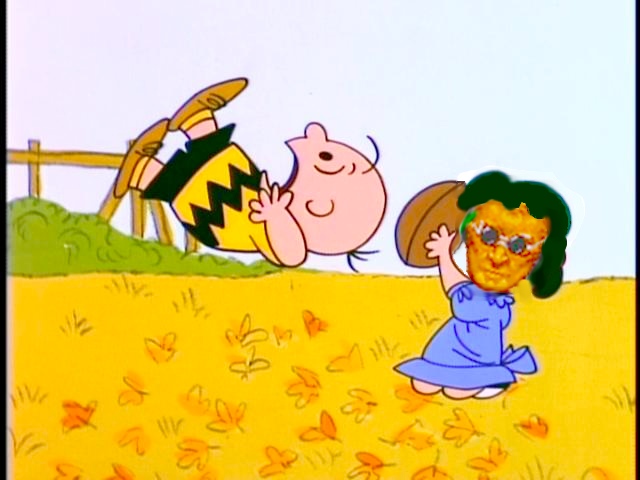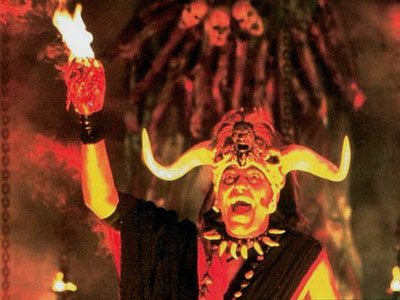A friend of mine
made a cogent point I'd like to reiterate here:
I picked up a recent product (which shall remain nameless), and I immediately encountered one of those cults that’s apparently been playing cards in a back room somewhere while languages changed, empires fell, and major faiths arose, doing nothing but awaiting the day when someone could steal an artifact and they could come forth to slay infidels in a white-hot rage.
After so many excellent scenarios with plausible, well-written villains, some authors still see cultists as simply being fanatical murderers. It’s even sadder when you realize that these writers are only getting away with this because those cultists are people of color from Third World countries. No one would believe that crowds of people from Islington or Sheboygan would run headlong at gun-toting investigators while waving knives, but plenty of readers accept it if those people are from Africa or India. Those are the parts of Lovecraft’s legacy that we’re supposed to be ashamed of, remember?
This is perhaps most obvious in Lovecraftian gaming, but it's not exclusive to it by any means - pretty much any pulp RPG suffers from this to some extant. "Cult" is a very weird concept. It's not just dressing up in robes and waving daggers around or group sex and plural marriage - there has to be something more to it, even if it doesn't directly play into the scenario, cults don't exist in a vacuum. I remember Frank and I talking about this in Sentai Fhtagn...
AH: Well, you have different flavors. There's the straight personality cults, using the Mythos as the hook.
FT: "Our victory is predestined, join the winning team." is a pretty good one, but while the Cthonians and Yithians can make it, a lot of the other groups kinda can't.
AH: There's the libertine cults, which know that the Great Old Ones are going to eat everybody, and so basically say "Fuck human taboos" - they're the one with fingers in human crime and vice, usually really nasty shit.
Dagon Cultists and others make the pitch that if you join the cult, you're on Team Don't Eat Me.
Ghoul cults are usually degenerate human religious cults syncretized with mythos knowledge. Like Christians that take that "this is my body" thing a little too literally and oh fuck now I'm growing a muzzle.
Brokers are like the libertines, but usually more focused and practical; they'd still fuck their mother, but only if there's something it for them. They're the sorcerous underground, trading in arcanotech and grimoires.
FT: In Sentai Fhtagn, Dagon Cultists are on Team Union because of the schism between R'lyeh and Y'ha Nth-lei
AH: Yeah, I'm just throwing ideas out there. Tools are cults built around a strong outlet to something really alien, and get co-opted to their purpose. Most don't last long as the side-effects erode the personality (and sometimes biology) pretty rapidly. But occasionally they get a good personality that turns them into something useful and/or dangerous. Cultists of Yog-Sothoth that think they're bringing transcendence to humanity or whatever by opening all the gates on Earth at the same time.
FT: I like the idea of the Union Security agencies having cults taxonimied.
Like you could go into a briefing and they'd say that the target was a Type II Utopian Cult or something.
AH: Sure. Mythos-flavored gangs and all that.
FT: But Hastur also needs a pitch to get cults going.
AH: Hastur has a couple pitches.
FT: "The Yellow Sign gives authority over the weak" is pretty decent.
AH: But I think mostly they involve having a tier of servants.
Like most people only know about Hastur through his yellow-eyed zombies and a couple grimoires, but if you get a critical mass of zombies together they start organizing a hierarchy and actively generating cults.
Because Hastur, more than anything, likes to bring people to Carcosa.
At least, that's what the Hasturian superzombies say.
It could just be that humans are programmed for religion and Hastur stimulates that part of the brain.
So people under the influence of the Yellow Sign literally start having conversations with god and whatnot.
FT: That would be interesting
AH: Which also makes Hastur cults maddeningly elusive - no two are exactly alike, and they can spread and proliferate like wildfire. Or memetic warfare.
FT: The Cthonians don't so much have cults as an actual country that has multiple races of people in it.
AH: The cult is the country.
Basically, the bureaucracy is a series of initiations where you are mentally and physically molded to be better at your job and talk to Cthonians.5:33 PM
So the highest-level people in the country are barely human by most standards, but they're also practically immortal and almost as indestructible as your average Cthonian.
Albeit with a wider temperature tolerance.
It's a bit Dune-esque, but that's not a bad thing with Cthonians.
FT: Shai Hallud
...and so on and so forth. But the idea is that cults aren't just people sitting around baby-sitting artifacts and fulfilling pulp stereotypes. Not just in a version of the "real" world, but in other games too, from fantasy stuff like D&D to anything else. Cults need some sort of organization, purpose, drive, philosophy, central text,
something that gives name and shape to the beliefs of people.

